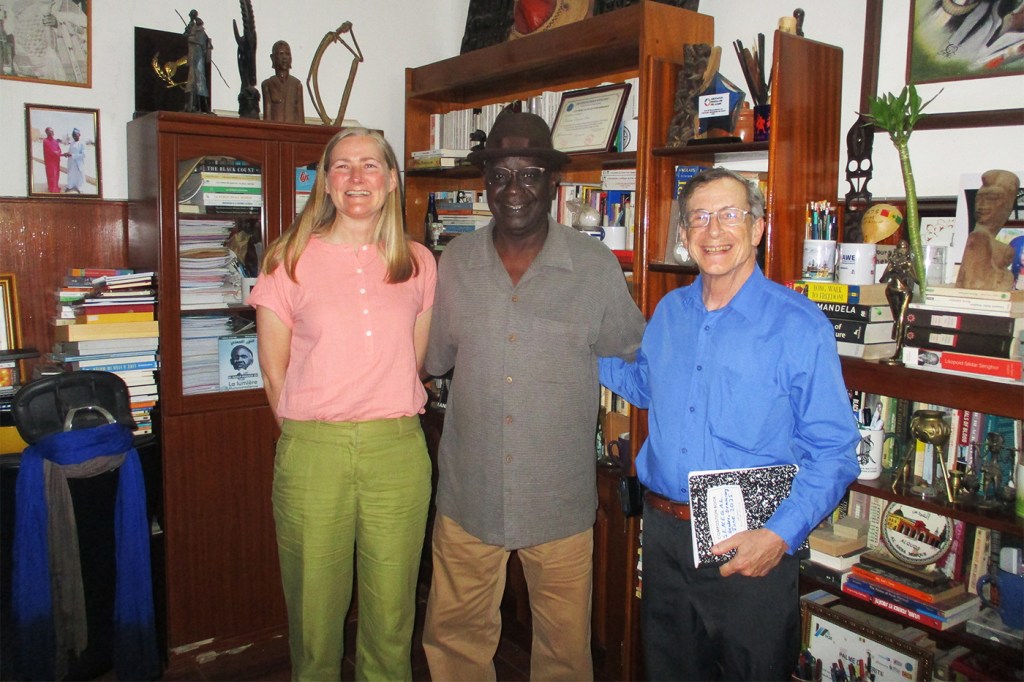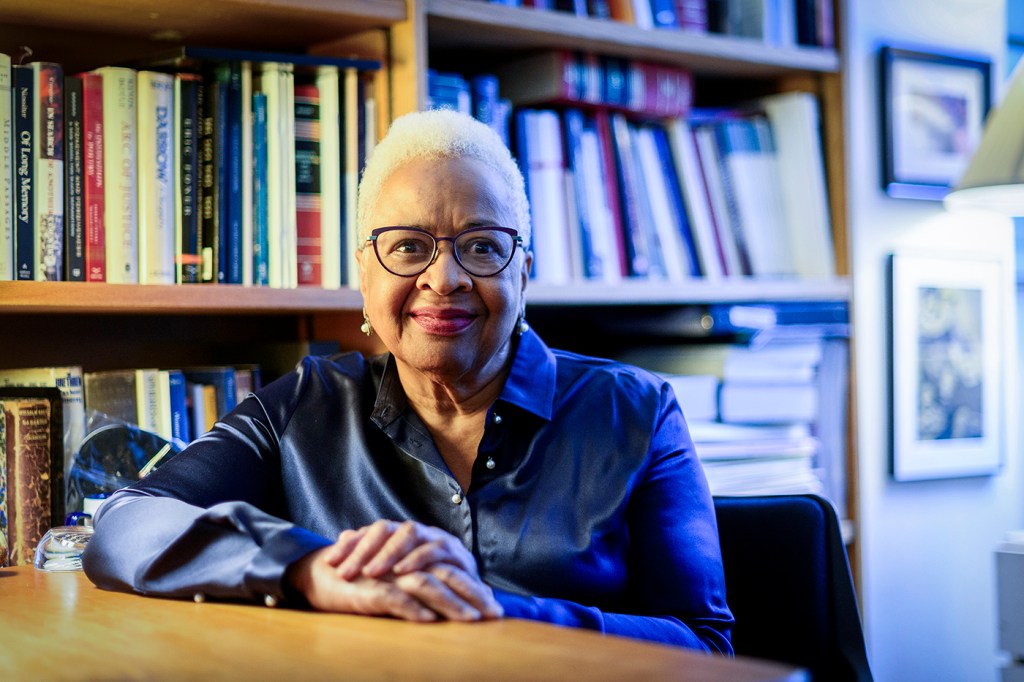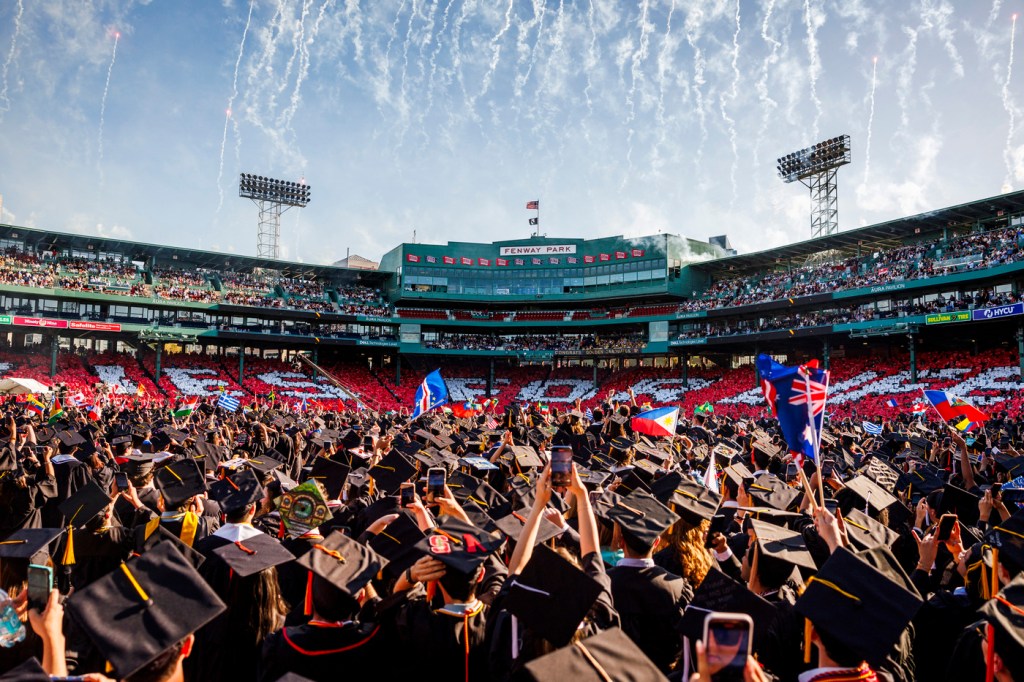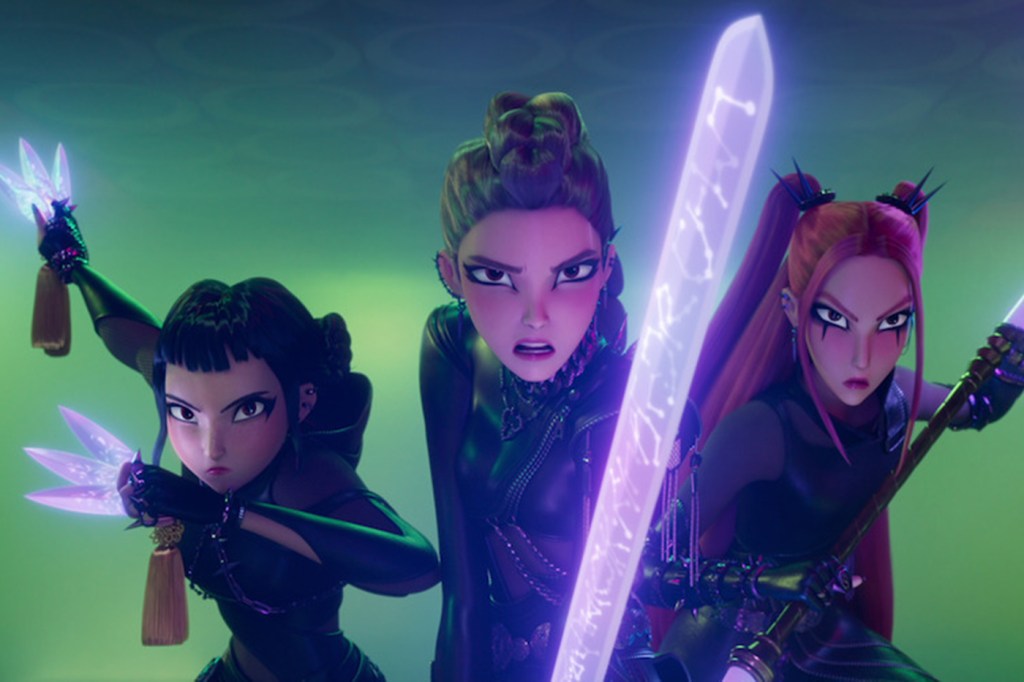Northeastern linguist finds resilient educators in Ukraine’s underground classrooms
Natalya Watson, a Northeastern associate teaching professor in the Global Pathways and Immerse Programs, visited an underground school in Kharkiv, about 25 miles from the Russian border.

As Natalya Watson walked through the classrooms of a newly built school, teenage boys ran back and forth along the hallway. It was early June, and they were preparing for graduation — about 26 feet underground.
Watson, a Northeastern University associate teaching professor in the Global Pathways and Immerse Programs, was visiting an underground school in Kharkiv, Ukraine, about 25 miles from the Russian border and less than 20 miles from the front line.
“These young people, they were just so happy,” she says.
Kharkiv — Ukraine’s second-largest city — endured heavy urban fighting in spring 2022 when Russia attacked from the north, east and south. Ukrainian forces later pushed the Russians back and liberated most of the Kharkiv region that September. But the city has come under regular strikes ever since. On the day Watson arrived, Russian troops hit Kharkiv with drones, aerial bombs and missiles overnight.
Watson has been studying how Ukrainian English teachers navigate their professional roles amid war. Colleagues told her they were teaching underground to keep classes going. That drew her east.
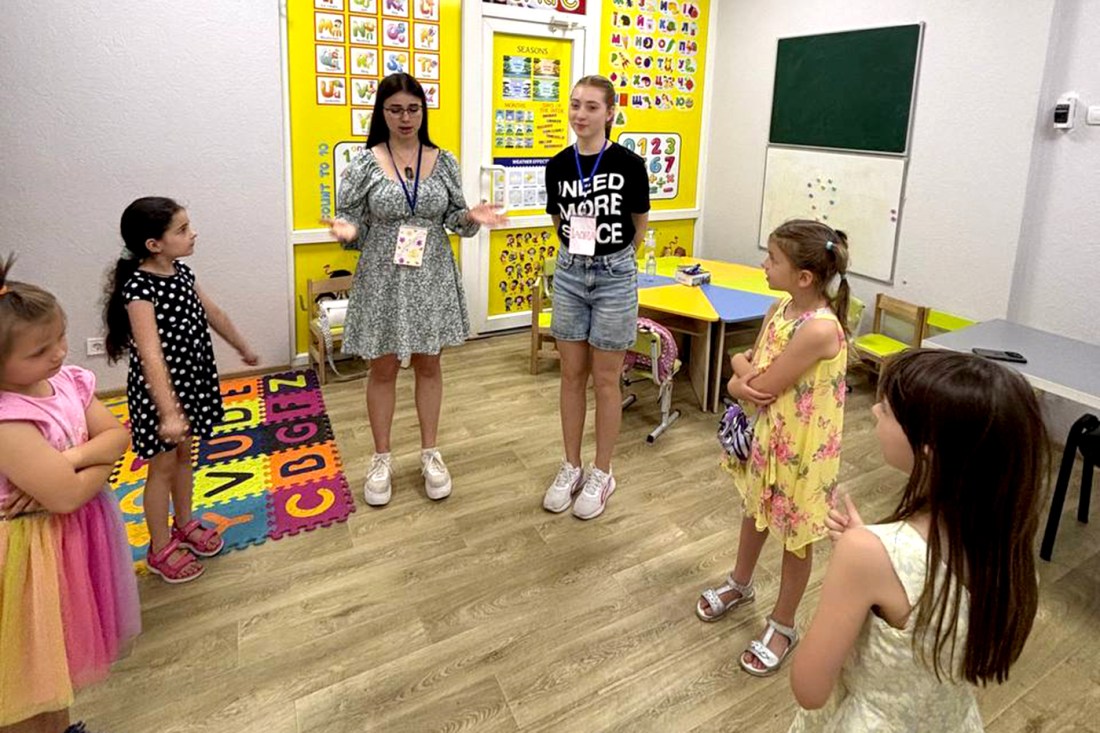
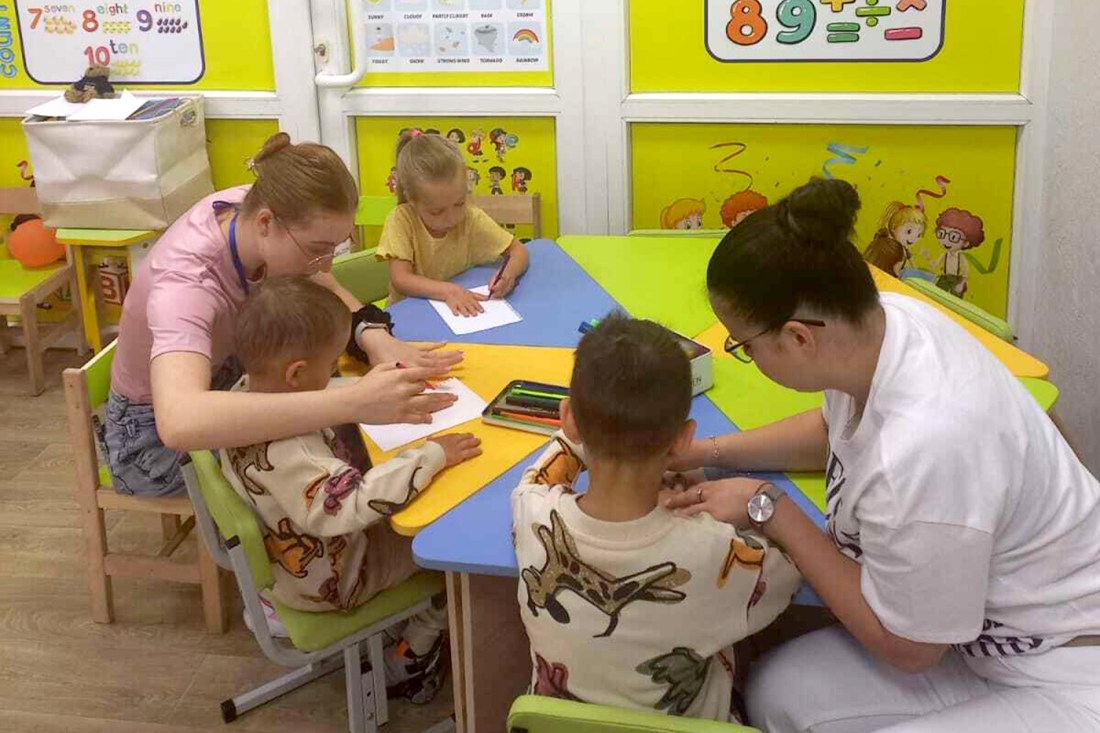
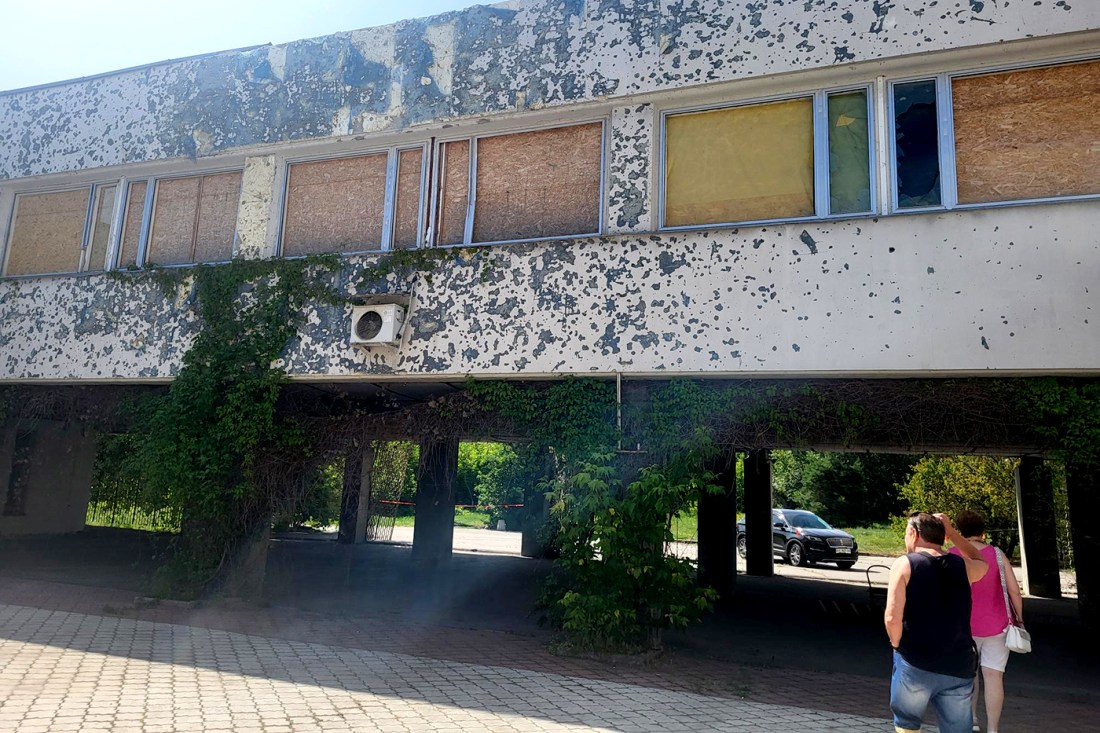
Before heading to Kharkiv, Watson attended a TESOL (Teaching English to Speakers of Other Languages) International Association conference in the western city of Ivano-Frankivsk in May. Members of TESOL-Ukraine discussed the emotional toll of wartime teaching, the use of digital media and technology, and strategies like gamification and drama in English classes.
“I can’t believe how enthusiastic and how creative all these people are,” Watson says.
She presented her work on teaching academic writing in the age of artificial intelligence, then traveled more than 640 miles by bus and train to Kharkiv.
“I was very much aware and apprehensive of what might happen as you travel east,” Watson says. “I was a little bit scared — I have two children I have to take care of.”
As the bus approached the city, she saw widespread destruction. At the city limits, armed female soldiers boarded to check documents.
“And it just hit me hard that, ‘Gosh, I am so close to the war zone,’” Watson says.

Before the war, about 2 million people lived in Kharkiv. The city was a major hub of science, education and culture, Watson says. Today, an estimated 1.2 million to 1.4 million residents remain. Despite damage or destruction to more than 200 educational institutions, children and college students continue their studies.
The underground school Watson visited sits in a residential district of about 300,000 people. The facility contains 16 accessible classrooms.
Students from different grades study there in shifts three days a week and online the rest of the time. Reliable in-person instruction is vital, Watson says, because internet access is inconsistent and air raids are frequent.
Editor’s Picks
During her visit, future English teachers from H.S. Skovoroda Kharkiv National Pedagogical University led summer classes for primary school students. For many children, it was their first time interacting with a group of peers in a physical classroom due to COVID-19 shutdowns and the Russian invasion.
Her colleagues in higher education also showed Watson their campuses, including boarded windows and piles of rubble.
At the Pedagogical University, only one building remains usable. The school is open, continues to educate students and hosts online events with foreign professors, but enrollment has fallen as students choose safer campuses in western Ukraine. The university’s president told Watson a merger may be necessary.
At O.M. Beketov National University of Urban Economy, a Russian rocket tore through the main building and left it unusable.
“It used to be a really beautiful building,” Watson says. “They cleaned it up … but nobody studies there because the inside is totally gone.”
The university also lost its Vocational College for Housing and Communal Services.
One institution Watson toured had withstood the assaults: a private law school with classrooms above ground and a new underground facility that includes classrooms, a dining hall and an athletic center.
The war has reshaped far more than the spaces where English teachers work, Watson says. Last year, she and Northeastern colleague Veronika Maliborska studied how Ukrainian English teachers were redefining their professional identity under martial law and staffing shortages while managing family health crises. They presented their findings at the American Association for Applied Linguistics conference.
Many teachers who remained in Ukraine taught from shelters, basements or apartment hallways. “They get interrupted all the time,” Watson says. “But they’re very resilient. They’re not behind. They still have to fulfill their job description, their faculty responsibilities.”
Curricula also shifted. Students asked about military terminology as teachers raced to master new technologies and integrate them into lessons. Even veteran instructors saw their roles evolve. Watson says many emphasized collaboration and mutual support, noting that students and professors alike were living through the same conflict.
Teachers also took on additional duties as informal counselors. They relied on emotional intelligence and socio-emotional learning to help classes manage fear and grief. Rather than formal therapy, instructors used practical mindfulness and grounding techniques, redirected discussions when necessary and built routines that offered stability.
Professional development became a lifeline. Ukrainian teachers joined TESOL webinars and conferences, both online and in person, to share strategies that work in disrupted classrooms.
Throughout her trip, Watson says what struck her most was the determination to maintain normalcy — in ways big and small.
“These young people,” she says, thinking back to the graduates she saw beneath the streets of Kharkiv, “they were just so happy.”





